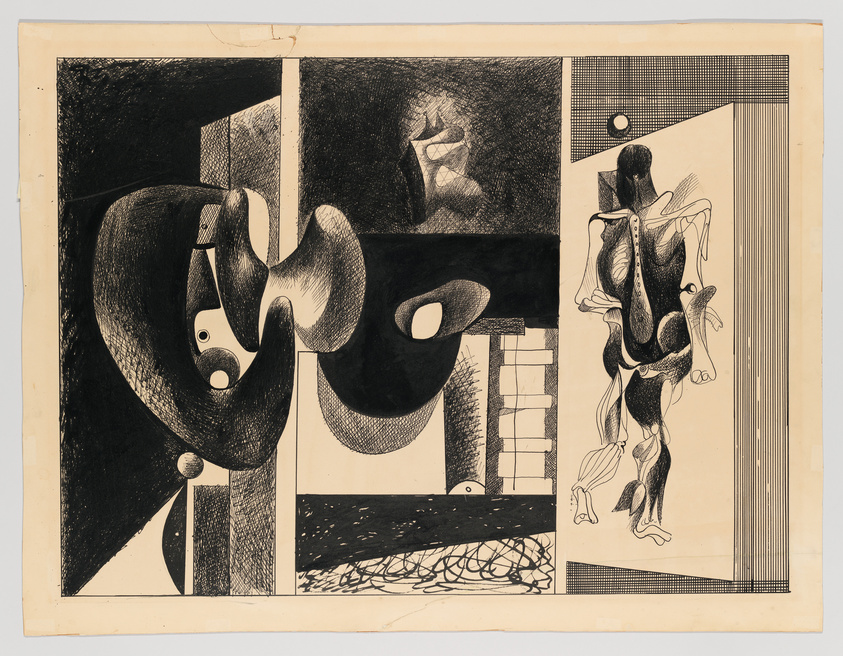Between 1931 and 1934, Arshile Gorky made two paintings and more than eighty drawings titled Nighttime, Enigma and Nostalgia. In creating this large body of work, Gorky was inspired by Giorgio de Chirico’s painting, The Fatal Temple (1914), which he saw in the collection of the Gallery of Living Art, a museum founded by collector Albert Eugene Gallatin at New York University in Greenwich Village. De Chirico’s painting, which contained a portrait of the artist’s mother, Gemma de Chirico, and a self-portrait with a dissected brain, may have been especially resonant for Gorky, who was working on two important paintings on the subject of the artist and his mother at the time. While the early drawings in the Nighttime, Enigma and Nostalgia series are closely connected to the composition of The Fatal Temple, Gorky gradually moved away from his predecessor’s image, shifting towards the biomorphic forms and rhythmic lines that would become hallmarks of his later work.
Not on view
Date
c. 1931–1932
Classification
Drawings
Medium
Pen and brush and ink on board (recto); Pen and ink and graphite pencil on board (verso)
Dimensions
Overall: 26 1/16 × 34 1/8in. (66.2 × 86.7 cm)
Accession number
80.54a-b
Credit line
Whitney Museum of American Art, New York; 50th Anniversary Gift of Mr. and Mrs. Edwin A. Bergman
Rights and reproductions
© The Arshile Gorky Foundation / Artists Rights Society (ARS), New York

